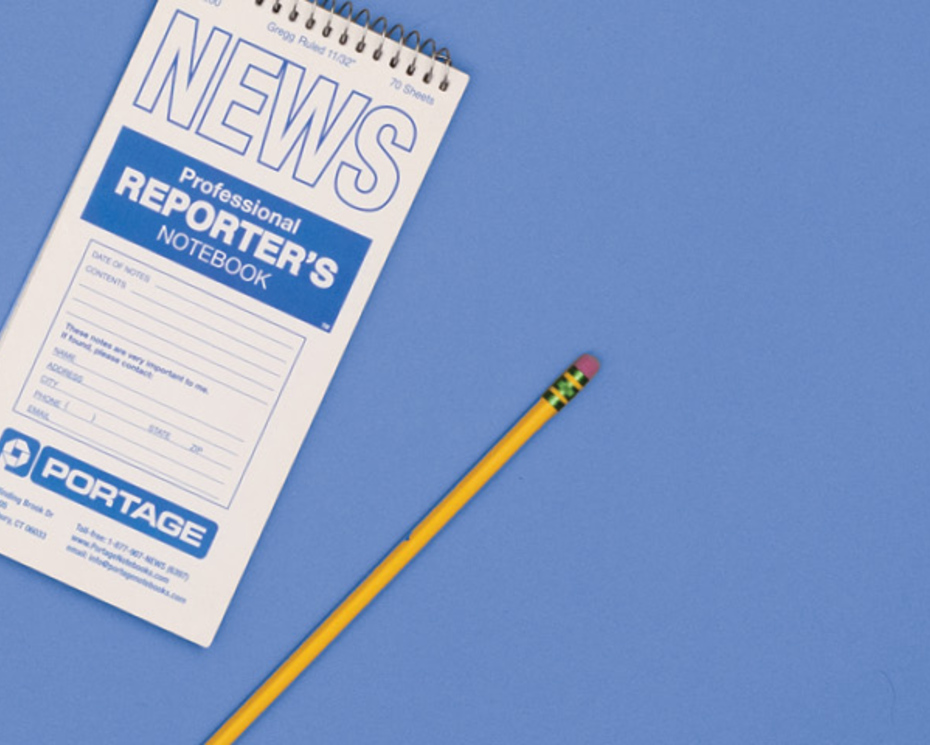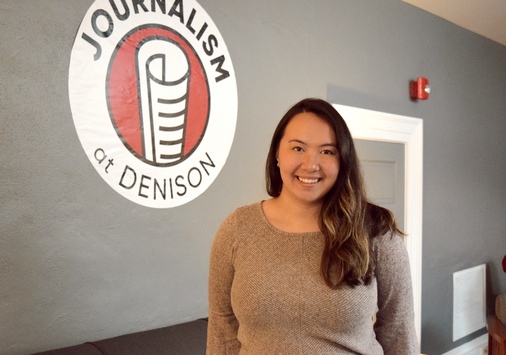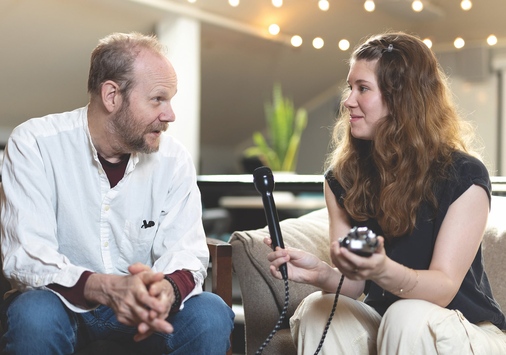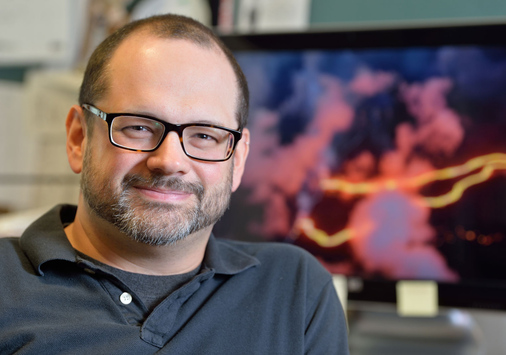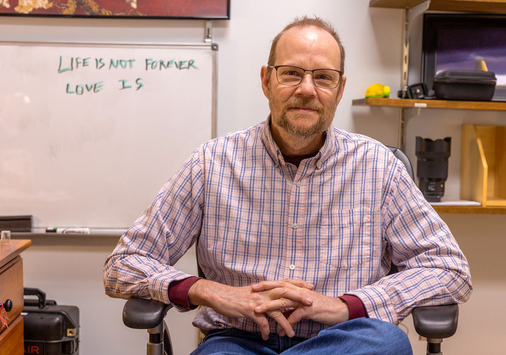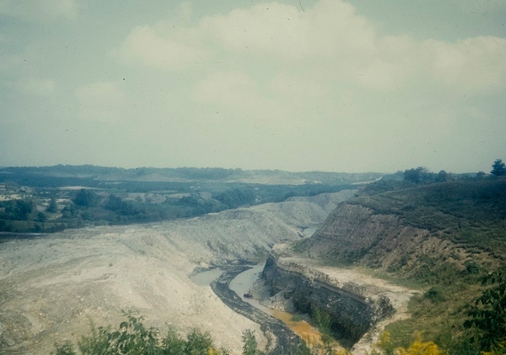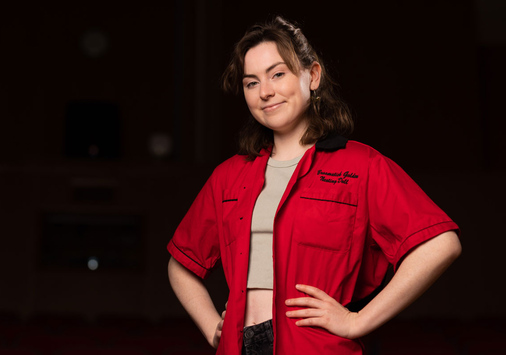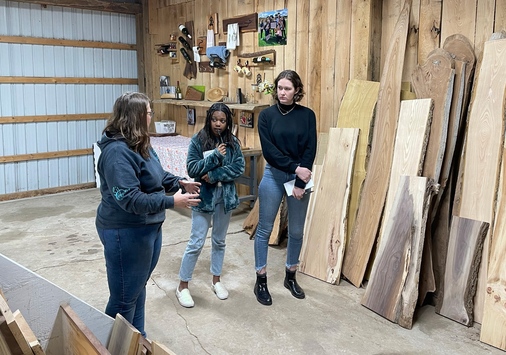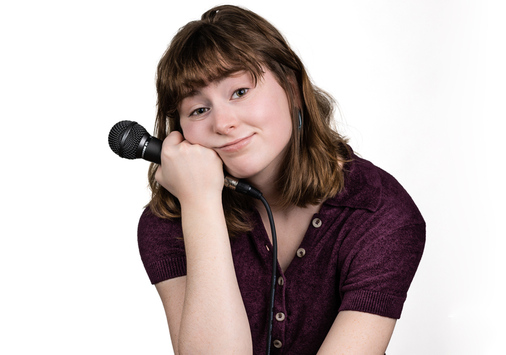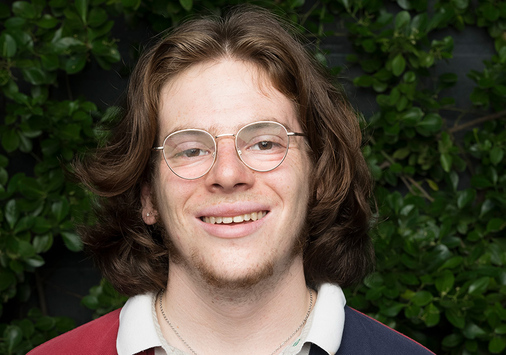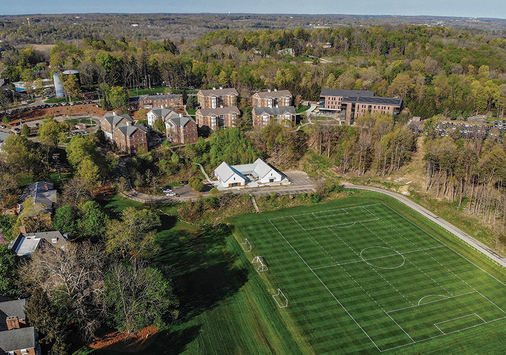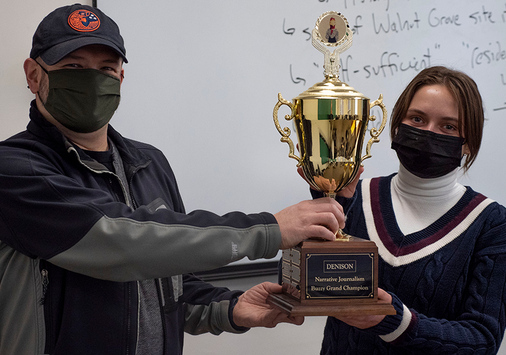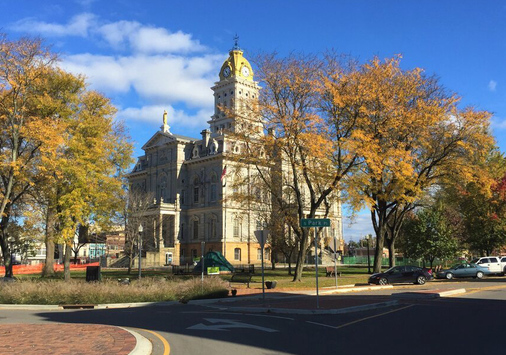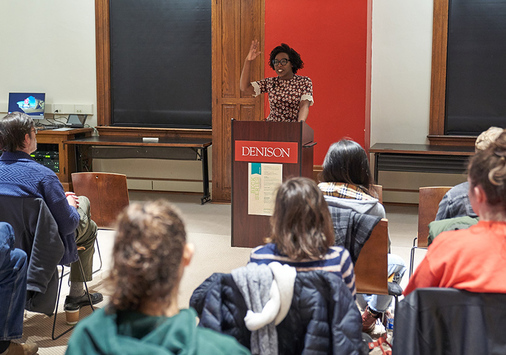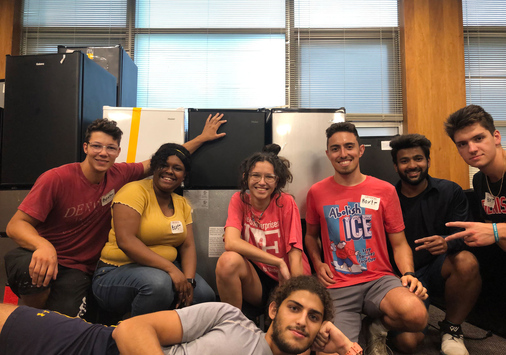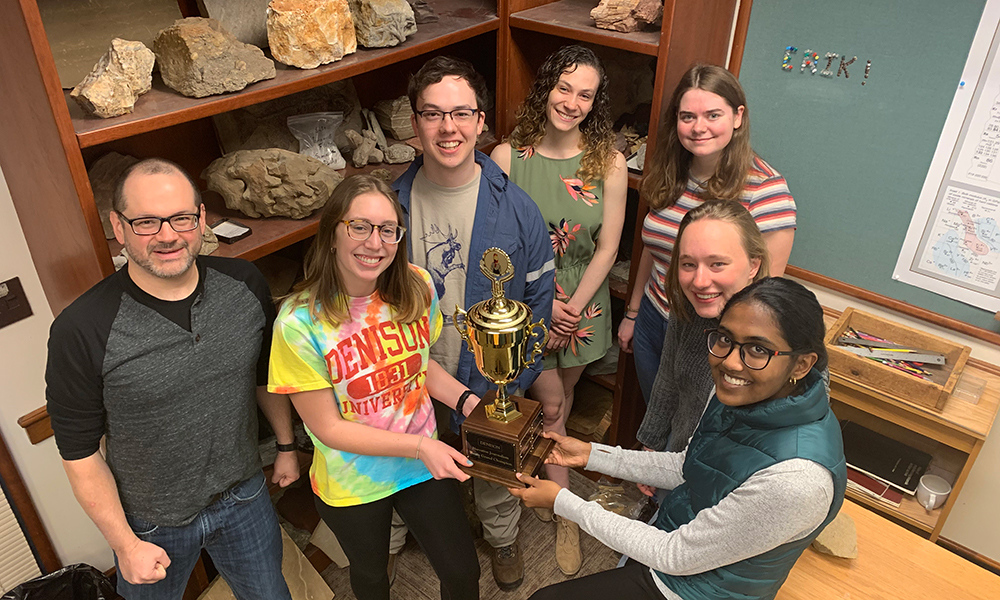
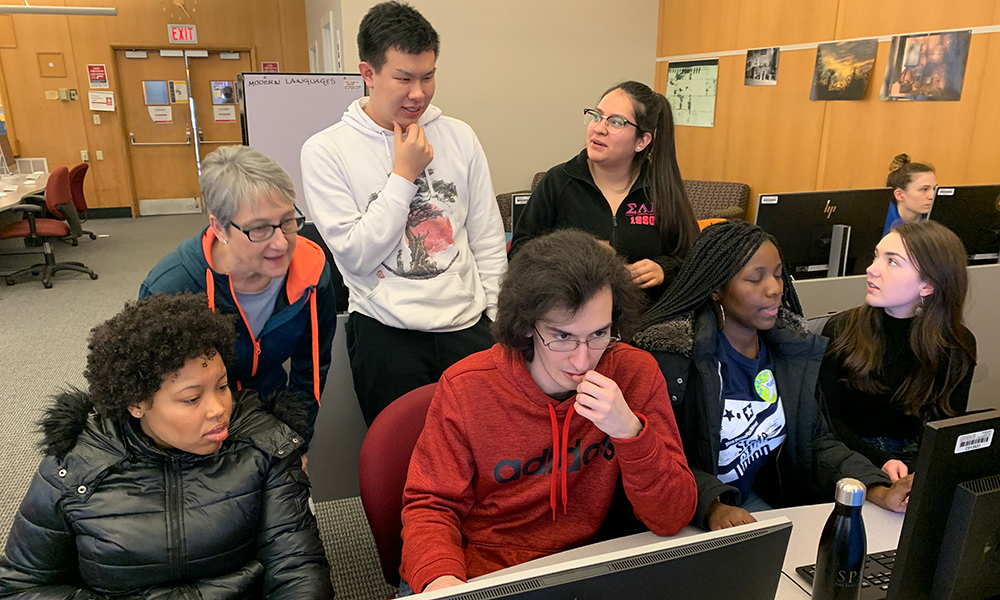
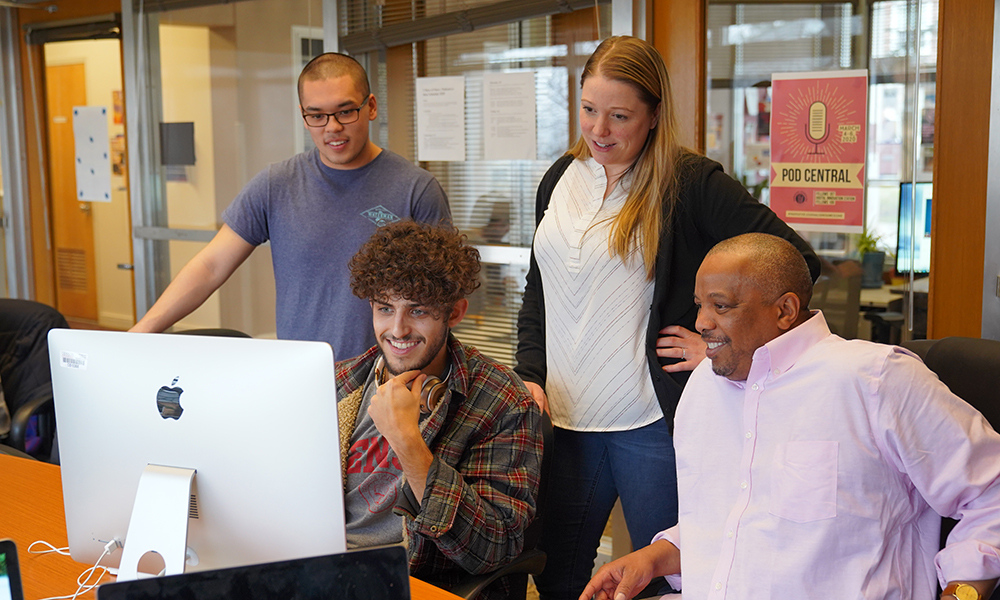
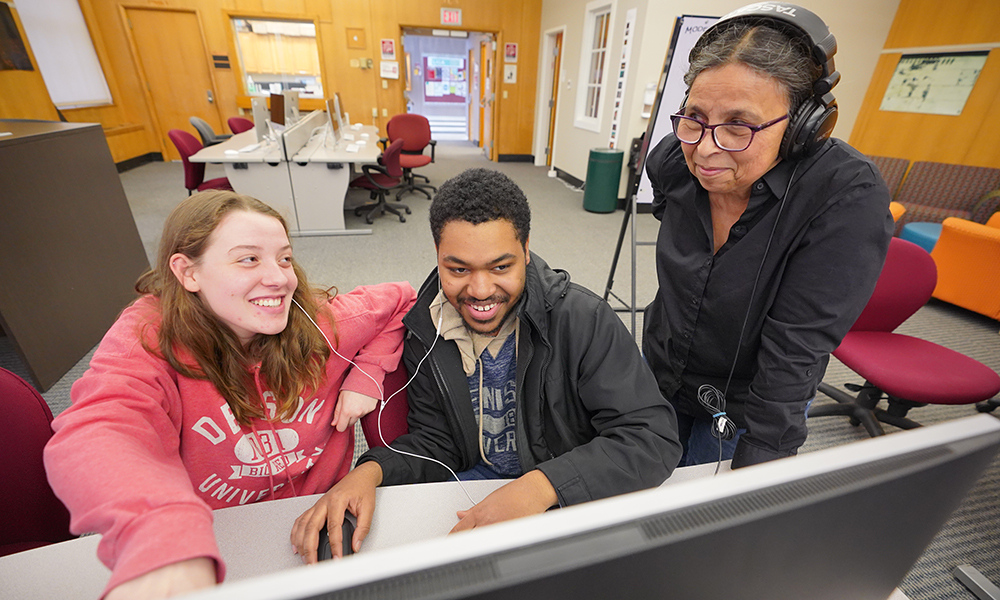
Paige Pfleger, an NPR news reporter with WOSU Public Media says it’s important to become skilled in a variety of mediums of storytelling including newspapers, magazines, podcasts, and radio. “Mastering many forms of journalism gives you so many options in your career,” she said in a recent interview. “We’re seeing right now during the pandemic how important having a good grasp of technology and social media can be for journalism.”
Pfleger was one of six radio professional mentors brought in for Journalism’s “Three Days of Story: Podcast-a-thon” from March 4 to 6 that assisted students from across departments in creating audio stories. For many students, this was their first time engaging with this sort of work.
Sarah Barney ‘21, an Environmental Science major and Narrative Journalism concentrator, was a member of the group that won the Buzzy Grand Prize trophy for their podcast “The Immortal Jellyfish” with partners Bhavana Huliyar ‘23 and Riley Jones ‘20 as part of Erik Klemetti’s “Science Writing for the Public” class. Before this experience, they had never used audio editing software or reported on a story outside of the traditional written format.
Barney said, “You have to write in a very specific way for audio stories. It was really fun learning and researching something I didn’t know about before and to put science into everyday words.”
When Journalism at Denison embarked on its campus-wide “Writing in Place” initiative 2 years ago, it was tasked with bringing innovative teaching methods to faculty and students that would help them develop skills to write place-based narratives for broader audiences.
The creation of the Podcast-a-thon competition is one means to accomplish this and to reach a diverse group of departments and students across campus. Participating classes came from a breadth of disciplines and included English, Environmental Science, History, Psychology, Spanish, and Cinema.
Jessica Hendry Nelson, a creative writing professor who teaches the course “Literature of Addiction,” explains, “Podcasts are simply a contemporary form of narrative nonfiction storytelling. They engage audiences who might not otherwise be drawn to the content. Incorporating podcasting in the classroom, expands the ways that students learn to be good storytellers.” The podcast team selected to represent her class included Mitch Williams ‘20, Isabella Antonelli ‘20, Maeve Quinn ‘20, and Owen Byrnes ‘21, all of whom had never worked with podcasts prior to this semester.
Their podcast, “Recovery on a College Campus,” won the People’s Choice Award and received an honorable mention from the judges; it explored Williams’s recovery from drug and alcohol addiction and the foundation to support his recovery he got from various communities at Denison.
“We felt that focusing on the community that surrounds those in recovery would provide a lens to tell this story,” said Williams. “Denison is a community full of many smaller ones. To tell that story, we wanted to acknowledge that reality.”
While some professors had students create podcasts that related to the topics of their class, others left prompts broader.
In total, ten classes participated in the podcast-a-thon and attended class sessions and workshops led by professional radio mentors from WOSU, WYSO, and WBEZ-Chicago. Workshops included Making Your Script Sing, Recording Narration, Mixing: Bringing It All Together, and Music & Sound Design. These workshops allowed students to work hands-on with the mentors as they created their podcasts.
The content of each workshop varied and allowed students to pick and choose which workshops would be most useful to what they needed. Denison’s Educational Technology Services (ETS) team also brought software expertise to the classrooms and hosted walk-in labs for students to learn how to record and mix audio using Adobe Audition software.
Kileigh Ford ‘20, who was in Klemetti’s “Science Writing for the Public” class, attended Mixing: Bringing It All Together in which she describes getting to see the thought process that goes into assembling a podcast in action. After learning the software with Denison’s ETS team, she describes how helpful it was to witness first hand how to take all the elements (music, audio from interviews, and so on) and put them together.
“It made me feel like this wasn’t just an assignment for class, I really felt like I was making a podcast. The podcast mentors treated us like peers which made me feel more welcome and more like they were people I could go to, to ask for help,” she said. “I also went to the ‘podcast hub’ in Fellows to ask questions when my partners and I were finishing up our podcasts. The mentors were so engaged and seemed genuinely excited about what we were talking about. That made me gain a lot more confidence in my piece.”
Additional podcast-a-thon honorable mentions were “Choose” by Graham Harrington from Doug Swift’s Storytelling with New Media class and “Denison’s Impact on the Environment” by Olivia Atlee, Lilian Baylis, and Anne Mattoni from Mirela Butnaru’s Spanish Writing Workshop.
The Three Days of Story: Podcast-a-thon and the “Writing in Place” initiative are funded by a grant from the Andrew W. Mellon Foundation.
